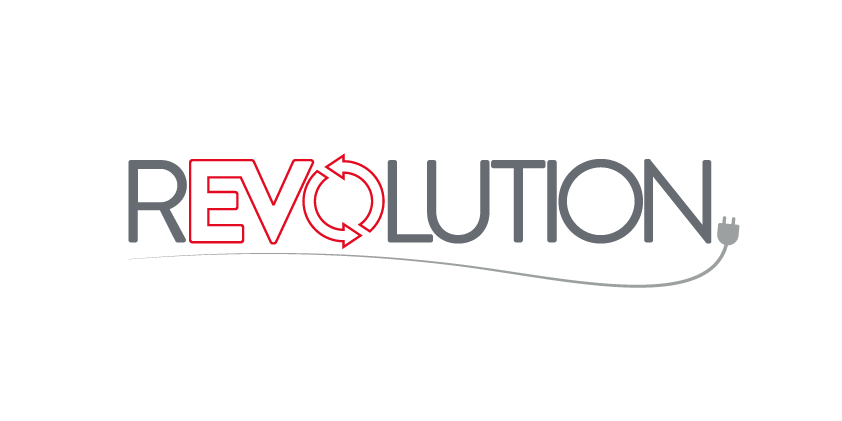Project Name: Supporting the Electric Vehicle REVOLUTION through maximising EV Range and End-of-Life Vehicle Recovery through optimisation of recycled plastics and advanced light materials.
Description
REVOLUTION focuses on overcoming the challenges hindering the use of recycled materials but, more broadly, restricting the widespread adoption of circular economy principles in the automotive industry. Forthcoming ELV directives are expected to recognise the potential for plastics to enable a circular flow of materials in the automotive sector. Implementing minimum post-consumer recyclate (PCR) targets in any new plastic components in vehicles is currently being discussed. These targets will disrupt the automotive industry.
The REVOLUTION project will demonstrate automotive components using polymer solutions which feature optimised recycled materials to increase light-weighting opportunities that extend the range and efficiency of Electric Vehicles and improve end-of-life separation of components to facilitate proper dismantling and the material’s reuse, recovery, and recycling.
The two main goals of the REVOLUTION project are, first, the weight reduction of the components, contributing to increased range and paving the way for enhanced electric vehicles. The second goal is the incorporation of circularity and sustainability principles in the car component industry by increasing the recovery of material for recycling and/or reuse by up to 80%.
Specific objectives are:
- Establish specifications for material design and develop compliant materials for the corresponding use cases.
- Development of an in-line monitoring framework, a predictive process model and an AI Model Predictive Control System.
- Manufacture demonstration and validation of the use case components which are crash box, lower rear bumper, rear backseat panel and B-pillar of vehicles.
- Development of conceptual models for material optimisation using machine learning and eco-design principles and creating designs and simulations for the above-mentioned components. Deliver scale-up specification targets for production.
- Demonstration of the recycling or reuse of more than 80% of the components tested in the corresponding use cases. Cradle to cradle Life Cycle Analysis and Social Impact Analysis
- Undertake a Techno-Economic Assessment and creation of business plans
Reason for applying to HSbooster.eu services
Within the scope of the WP5 of REVOLUTION project, end-of-life strategies of the target demonstrated components of electric vehicles (EV) have been investigated. The work includes mapping the structures currently in place for recovering and recycling each component of material in order to provide information on the various potential outlets for the secondary raw materials. Therefore, information on the various potential outlets of the secondary raw materials, and their financial values at the EoL will be elaborated. Develop indicators to evaluate the circularity of the REVOLUTION solutions, taking into account the Eco-Design directive in material and component design for enhancing recyclability and increasing the use of recycled content, The indicators will also consider the separation of different plastic types, mechanical quality and chemical safety at end-of-life of the component. The indicators will also consider the separation of different plastic types, mechanical quality and chemical safety at end-of-life of the component. There are experts from the industry and RTOs in the REVOLUTION consortium in a broad range of topics, including raw materials, additives, polymer & compound manufacturing, part production, car manufacturing, EoL, LCA, SIA, TEA, etc. Nevertheless, we currently lack the necessary EU Regulatory and Standardization frameworks information related with the utilisation of recycled materials and requirements for automotive products and components related with the EV sector. The support from Horizon Standardisation Booster for “Standardization and legislative framework for ELV directives” will be beneficial for the elaboration of the work through REVOLUTION.
Main Standardisation Interests
The related objective of REVOLUTION regarding standardisation activities is being operated under "WP5: Environmental and Societal Assessment" and it is;
- "Demonstration of the recycling or reuse of more than 80% of the components tested in the corresponding use cases. Cradle to cradle Life Cycle Analysis and Social Impact Analysis."
Through this objective, the related activities with standardisation are;
- to commence with mapping EU regulatory and standardisation frameworks related to the utilisation of recycled materials, and requirements for automotive products and components.
- to adjust REVOLUTION end-of-life strategies to verify their adaptivity for the production of thermoplastic components in the automotive industry at a large scale
- to perform Life Cycle Assessment to evaluate the environmental impacts of the technology proposed in REVOLUTION for the recycling of plastic polymers and the production of lightweight materials
Project Acronym: REVOLUTION

Grant Agreement Id: 101006631
Start Date:
End Date:
Programme: H2020-EU.3.4. - SOCIETAL CHALLENGES - Smart, Green And Integrated Transport
Call for proposal: H2020-LC-GV-2018-2019-2020
Funding Scheme: IA - Innovation action



